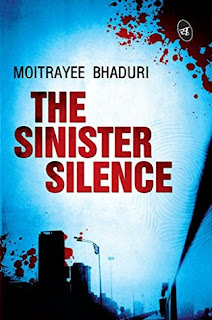Guest Post #3- by Bikramjit Singh Mann
They say, love is quite enough reason for two souls to be tied in matrimony. It being a sacred and long lasting bond the person who’s being married should have the right to choose his/her spouse. In socially developed countries, it’s usual for people to fall in love and tie the knot. There are also cases of arranged marriage where the families assess each other and agree for the marriage. And then there are cases where matrimony is forced onto the bride and/or groom. When one or both parties are married without his/her consent or against his/her will it is termed as a forced marriage.
The practice of forced marriage was very common amongst the upper classes in Europe until the 1900s, and is still practiced in parts of South Asia, East Asia, the Middle East, and Africa. Forced marriages are done mostly for family pride, the wishes of the parents or social obligation. In India and Pakistan, a lot of such matches are made in hopes of getting a British citizenship for the spouses mostly women.
United Nations views forced marriages as a Human Rights violation as it abuses the mere essence of human freedom and autonomy of individuals. Forced marriages are often the seeds to acts of cruelty and torture. Women are inflicted with domestic violence at the hands of abusive husbands. Dowry death is one of the serious implications. Sometimes the married women try to escape from the clutches of such forced matrimonies and end up being killed by their family members where the murder is termed as an honor killing.
United Kingdom parliament passed an act in the year 2007 called Forced Marriage (Civil Protection) Act 2007 which aims to address to the victims of forced marriage or those threatened with forced marriages, with civil remedies.
A person threatened with forced marriage can apply to court for a forced marriage order. The court tries to prevent the forced marriage from taking place with any evidence it can get, or tries to protect a victim of forced marriage from its effects which may include measures such as confiscation of passport or restrictions on contact with the victim. The subject of a forced marriage order can be not just the person to whom the forced marriage will occur, but also any other person who aids, abets or encourages the forced marriage. A marriage can be considered forced not merely on the grounds of threats of physical violence to the victim, but also through threats of physical violence to third parties (e.g. the victim's family), or even self-violence (e.g. marriage procured through threat of suicide.) A person who violates a force marriage order is subject to contempt of court proceedings and may be arrested.
Also, there have been many cases where a person is lured to another country and forcibly married to the local of that country. In such cases, the marriage is considered null and void in UK. There are also provisions to extradite the spouse to whom the person is forcibly married to, for criminal proceedings.
Forced marriages may not seem to be creating ripples but they are strong catalysts which initiate lifelong chain reactions of other inhuman acts of domestic violence, physical and mental abuse, rapes, etc. Such acts of cruelty sometimes drive helpless women to even commit suicide!
It is high time that the Indian system awakens to this fact too and takes steps towards protecting the oppressed women in the Indian society. This post is with a wish that like in the UK, forced marriages will soon be treated as criminal offense and that Indian women will also recieve equal justice.


Comments